At AI Video Generators Free, we know understanding new platforms is key. That's precisely why I'm here to address your VideoGen FAQs: Common Questions and Answers.
The landscape of AI tools for video changes so rapidly, and staying informed feels really vital. This guide delves deep into VideoGen, shedding light on everything from its core functionalities to how it compares with other significant AI tools. With its user-friendly interface and advanced features, VideoGen stands out among its competitors. For those looking to maximize their experience, a comprehensive VideoGen Tutorial is essential, providing step-by-step guidance on harnessing its full potential. Whether you're a beginner or an experienced user, understanding the nuances of VideoGen can significantly enhance your video production capabilities.
We're going to explore how VideoGen aids efficient digital marketing efforts and seamless video production serving businesses and creators alike. You will gain practical insights into its pricing, commercial usage rights, and important limitations. Understanding these details aids you in making truly informed decisions for your projects.
If you have ever wondered about the power of AI in creating compelling visual stories, this comprehensive FAQs AI Video section, part of our broader FAQs AI Video category, provides all the clarity you need. We truly want to empower folks with the knowledge to select the ideal solution for their needs.
Key Takeaways
- Business-Focused AI Video: VideoGen is an AI platform designed for creating professional-quality videos from text, focusing on practical applications for marketing and business.
- Production-Ready Tool: Unlike experimental models like Sora and Veo, VideoGen provides a complete, end-to-end workflow with asset libraries and commercial licensing.
- Subscription-Based Pricing: It offers tiered plans (Pro, Scale, Business) that are significantly more cost-effective than traditional video production.
- Commercial Rights Included: Paid plans grant full commercial usage rights, making it a legally sound choice for businesses and marketers.
- Key Limitations: Users should be aware of current AI challenges, including temporal consistency, complex physics simulation, and achieving nuanced human expressions.
What is VideoGen FAQs and how does it work?
VideoGen is an AI-powered video generation platform that enables users to create professional-quality videos from text prompts in minutes. The platform uses advanced artificial intelligence to transform written scripts into fully produced videos with voiceovers, visuals, and cinematic effects.
The technology operates through a sophisticated multimodal pipeline. It starts with natural language processing to analyze your text and understand the narrative. With over 150 voices and 40 languages, VideoGen's text-to-speech engine generates high-quality narration. Simultaneously, the AI selects and compiles relevant visual content from an extensive library of copyright-free assets, including stock footage, images, and b-roll content.
The platform offers multiple cinematic styles and automatic features like caption generation and b-roll compilation. Users can input detailed prompts describing their desired video content, and the AI handles the complex video production process automatically. This approach eliminates the need for traditional video editing skills, expensive equipment, or lengthy production timelines. The result is a complete video that can be exported and used immediately for marketing, education, social media, or business presentations.
How does VideoGen FAQs differ from AI video generators like OpenAI's Sora or Google's Veo?
VideoGen distinguishes itself from experimental AI models like OpenAI's Sora and Google's Veo by focusing on practical, business-ready video creation rather than cutting-edge research demonstrations. While Sora and Veo represent impressive technological advances in AI video generation, they remain largely experimental or have limited public availability.
VideoGen operates as a complete, production-ready platform designed for immediate commercial use. Unlike single-prompt generation models, VideoGen provides an end-to-end workflow that includes integrated text-to-speech capabilities, extensive asset libraries, automatic captioning, and multiple export options. The platform prioritizes consistency, reliability, and user control over experimental features.
The key difference lies in application focus. While research models like Sora excel at generating highly realistic but unpredictable content from creative prompts, VideoGen specializes in creating professional marketing videos, educational content, and social media posts with predictable, business-appropriate results. VideoGen's approach emphasizes practical features like multiple language support, commercial licensing clarity, and integration with existing marketing workflows.
This makes VideoGen more suitable for businesses, marketers, and content creators who need reliable video production tools rather than experimental AI capabilities. The platform's strength lies in transforming text-based marketing materials, training content, and promotional scripts into polished videos efficiently and affordably.
What are VideoGen FAQs pricing plans and costs in 2025?
VideoGen offers three pricing plans, though pricing may vary based on current promotions and feature updates. Each plan provides different levels of access to text-to-speech generation, AI image creation, video production capabilities, and storage limits.
| Plan | Price per Month | Target Audience |
|---|---|---|
| Pro | $24 (or $29) | Individual creators and small businesses |
| Scale | $99 | Growing businesses and content creators |
| Business | $330 | Organizations with substantial video needs |
The Pro plan serves as the entry-level option, providing access to core video generation features with moderate usage limits. The Scale plan targets growing businesses needing higher production volumes, while the Business plan includes advanced capabilities like API access and priority support.
All paid plans include access to VideoGen's library of copyright-free assets, multiple voice options, and commercial usage rights. The pricing structure reflects VideoGen's positioning as a professional video creation tool, with costs significantly lower than traditional video production services, which can cost $100–$1,000+ per minute. With VideoGen, you can create unlimited videos for a low monthly fee, highlighting the platform's cost-effectiveness.
Can I use VideoGen FAQs videos for commercial purposes without restrictions?
Yes, videos created with VideoGen's paid subscription plans come with full commercial usage rights, allowing you to use generated content for business purposes including marketing campaigns, advertisements, social media content, client work, and monetized online videos. This commercial licensing is a crucial advantage for businesses and content creators who need clear intellectual property rights for their video content.
The commercial license covers various business applications including product demonstrations, promotional videos, educational content for sale, social media marketing, website content, and client deliverables. VideoGen's approach to commercial licensing eliminates common concerns about usage restrictions that often complicate other AI-generated content platforms.
However, it's important to verify the specific terms of service for your chosen plan, as licensing terms may vary between subscription tiers. The platform's focus on business users means that commercial rights are prioritized, but users should always review current terms to ensure compliance with their specific use cases.
For organizations requiring additional licensing clarification or custom usage rights, VideoGen's Business and Enterprise plans may offer enhanced commercial terms. The clear commercial licensing structure makes VideoGen particularly attractive for marketing agencies, content creators, and businesses that need reliable, legally compliant video content for their operations. This business-friendly approach distinguishes VideoGen from platforms with more restrictive usage policies.
What are the main limitations of VideoGen FAQs I should understand?
VideoGen, like all current AI video generation technologies, has several important limitations that users should understand to set appropriate expectations. The primary constraints involve: the quality of generated videos, which can vary significantly based on the input data. Users may also encounter issues related to the coherence of narratives and the realism of characters in the footage. A thorough VideoGen Review can help potential users navigate these limitations and make informed decisions about its capabilities.
- Temporal Consistency: Details like clothing patterns, background objects, or character features may subtly change between cuts or longer sequences. This is an industry-wide challenge.
- Complex Physics Simulation: While good at standard scenarios, the AI struggles with highly intricate physical interactions like realistic glass shattering or complex object collisions.
- Hyper-Realistic Human Representation: Close-up facial expressions and hand movements present ongoing challenges, though AI avatars are effective for presentation-style content.
- Multilingual Context: It may produce pronunciation errors in some non-English languages, and the visual context often remains Americanized.
How can I create effective prompts for VideoGen FAQs to get the best results?
Creating effective prompts for VideoGen requires a structured approach that balances specificity with clarity. The most successful prompts follow a clear framework. Here are key steps to get the best results: Identify the primary goal of your video, as this will guide the tone and content of the prompt. Additionally, consider the target audience to ensure the message resonates effectively. By incorporating these elements, you can enhance your VideoGen Usecase and achieve optimal engagement.
- Structure Your Prompt: Start with a clear subject and primary action, then layer in environmental details and stylistic preferences. For example, instead of “a video of a car,” use “A red convertible sports car driving along a coastal highway at sunset, cinematic style with warm golden lighting.”
- Use Visual Descriptors: Incorporate vivid adjectives (“serene,” “vibrant”), camera specifications (“close-up,” “drone footage”), and lighting descriptions (“golden hour,” “neon-lit”) to influence the outcome.
- Leverage Cinematic Styles: Apply built-in styles like “Documentary,” “Noir,” or “Commercial” after generation to add professional polish.
- Work in Short Scenes: Break complex videos into shorter, focused scenes (3-5 seconds each) with specific prompts, then combine them for longer content.
- Iterate and Refine: Start with basic descriptions and gradually add details to guide the AI. Focus on prescriptive language (what you want) rather than negative instructions (what to avoid).
Are VideoGen FAQs videos created with watermarks?
The presence of watermarks on VideoGen videos depends on your subscription plan. Paid subscription plans typically provide videos without prominent branding, as professional and business users generally require clean, unbranded video output for commercial applications.
However, entry-level or trial plans may include subtle branding to encourage upgrades to full commercial plans. For definitive information, users should consult VideoGen's current terms of service or contact customer support directly, as these policies can change.
When evaluating VideoGen for professional use, consider requesting sample outputs or using trial periods to verify that video branding meets your requirements. Understanding these policies upfront helps ensure the platform meets your specific needs for client work and marketing campaigns.
How long can VideoGen FAQs videos be and can I create consistent characters?
VideoGen specializes in short-form video content, with individual generated clips typically ranging from 3 to 10 seconds for optimal quality and processing speed. For longer content, users generally generate multiple short clips and combine them using external video editing software.
Character consistency is one of the most challenging aspects of current AI video technology. Maintaining identical character appearance, clothing, and features across multiple scenes remains difficult for all AI video generators. VideoGen performs best with consistent character descriptions that emphasize key identifying features like “woman with red hair in blue coat” throughout related scenes.
For the highest consistency, VideoGen's AI avatar features work well for presentation-style content where a virtual presenter delivers information directly to the camera. For narrative content, best practices include keeping scenes short and using detailed, consistent character descriptions across prompts.
Who should use VideoGen FAQs and what are the best use cases?
VideoGen serves a diverse range of users who need professional video content without the complexity and cost of traditional production. The platform is ideal for the following groups:
- Marketing Professionals & Small Business Owners: Use it for promotional videos, social media ads, product demos, and A/B testing creative concepts quickly.
- Content Creators & Educators: Leverage it for YouTube content, training materials, e-learning modules, and instructional videos, especially with its multi-language support.
- Entrepreneurs & Startups: Create professional pitch videos, investor presentations, and marketing materials on a limited budget.
- Sales Teams: Generate personalized client presentations, product demos, and follow-up content without needing dedicated video resources.
The platform works best for users who need consistent, professional video output for business communication, educational content, and marketing applications where clarity and efficiency are paramount.
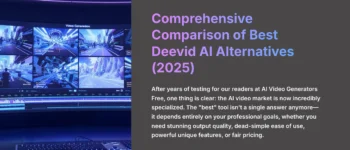
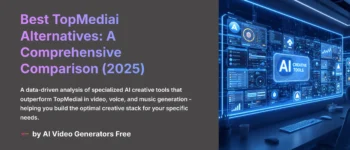

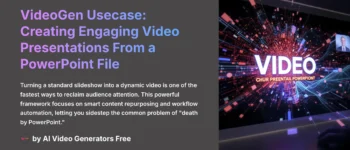
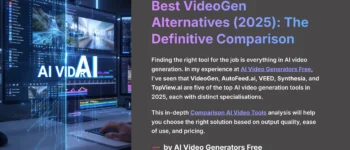
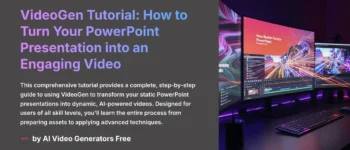

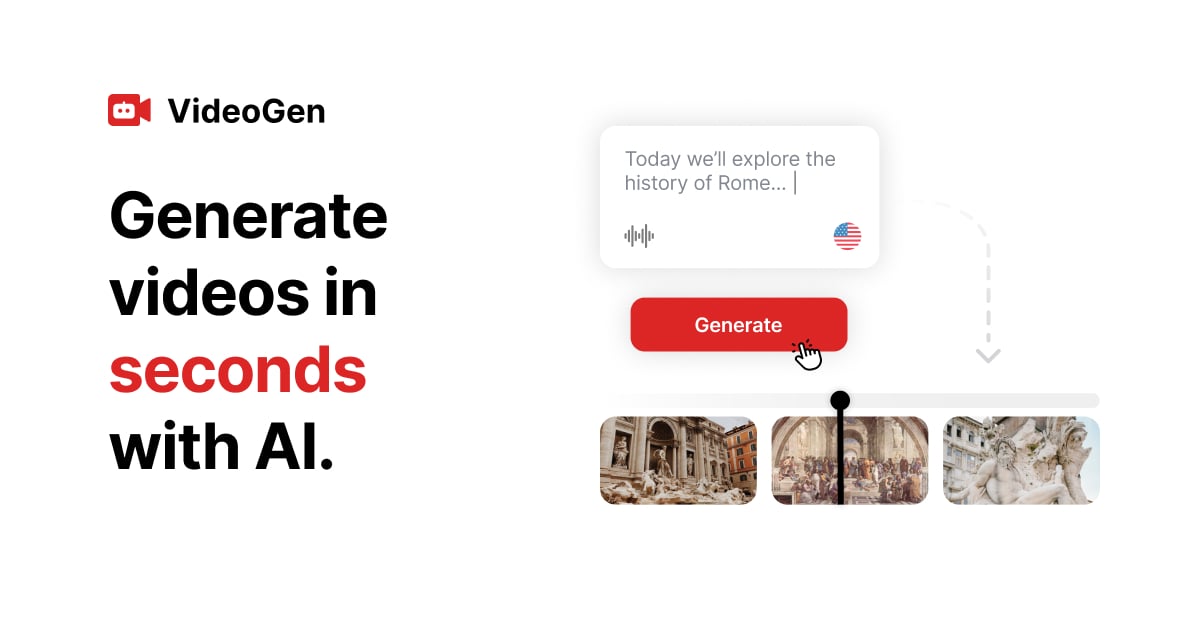

Leave a Reply